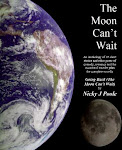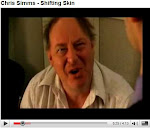Non-fiction article explaining a widespread but often not widely-understood disease.
It’s a disease that strikes fear and dread into the bravest hearts. It’s a word, even today, said usually in little more than a whisper, or not said at all – when John Wayne got it, he told a friend that he had "Big C." His friend thought that the Duke was admitting to having caught "the clap." It affects all age groups, from babies to octogenarians, both genders, all races. It attacks all parts of the body. It is sometimes resistant to treatment and, untreated, can kill. The word is cancer.
Even reading it makes you feel someone has just walked across your grave. More than one in four people will have cancer during their lifetime, and after heart disease cancer is now the most common cause of death in western countries. But "cancer" needn’t mean "curtains," and there is plenty of good news about this so-called silent killer. So, what exactly is cancer?
Is that a hand up at the back there? I thought not. Most people have only a vague idea what the disease is. Hardly any wonder – it’s not one disease, but a whole family of them, brothers sisters, aunts, uncles, cousins and all. In a nutshell, most of your body is made up of many different tissues, and there are as many cancers as there are types of tissue. The tissues are made of cells which grow by dividing like amoeba (hence the old amoeba joke – Frank and Mabel Amoeba have split up.) Each pair of daughter cells is supposed to be identical to the parent. But sometimes this duplication goes wrong (just think about your average photo-copier) and abnormal out-of-control cells, that sometimes grow very rapidly, are the result. This is known as a tumour, which may or may not be harmful. But if is, it means trouble. There are also cancers of the blood.
Despite all the scare stories you hear, in the press and on TV, the precise causes of most types of cancer are not known – at least, not officially, by researchers in the field (who demand a very high burden of proof.) But the usual suspects have a lot of evidence stacked against them. Carcinogens – poisonous chemicals that are linked to many cancers – environmental factors, such as radiation – including sunlight – are all up there. And, of course, top of the list is cigarettes. Along with certain foods, drink, not exercising, not eating other foods such as fruit and veg, and others of life’s pleasures. Annoying, isn’t it? Some cancers can be caused by viral infections and some are even hereditary.
Which brings us to good old DNA. Back in the 1950s, no-one knew what it was. Then Crick and Watson discovered the now-familiar double-helix, the Secret of Life. Today, we can’t get away from the stuff, with stories about gene therapy and genetically modified food in the news every day. What’s the connection? Basically, DNA carries the genetic instructions for making cells. If these instructions get damaged in any way, cells go wrong. The amazing thing is not that errors occur, but that they are, relatively speaking, so rare. If the instructions to make you were copied from generation to generation by the world’s best copy typists, you’d have mutated back into jelly millions of years ago.
What causes DNA to copy itself incorrectly? One or more ‘insults’ – which is the technical term for exposure to carcinogens – may result in damage or modifications to a cell’s DNA. ‘Oncogenes’ are genes present in the DNA of every cell and carry out normal functions but have the potential to make a normal cell turn cancerous. These genes help regulate normal growth and development, but an abnormal change may cause them to produce irregular or excessive amounts of chemical signals. These may stimulate extreme or abnormal cell growth. On the other hand some genes are thought to be protective against cancer and viruses causing badly damaged cells to self-destruct. So don’t go insulting your DNA, if you can help it. In particular, avoid tobacco. Tobacco is a killer. If it were discovered today, it would be banned.
Treatments for cancer are improving all the time. Surgery can be used to remove isolated tumours but is sometimes not suitable for deep-seated problems. Radiation, which is a possible cause, can also be a cure. By focussing the radiation from a number of different angles, the tumour gets burnt to a crisp, while healthy cells all around receive just a mild toasting. Chemotherapy uses a near-toxic cocktail of drugs, intended to kill bad cells while leaving the rest of you alive – just. It tends to kill the hair cells in your scalp, which is why patients go bald.
Prostate cancer is on the rise so rapridly that it is likely overtake lung cancer as a cause of premature male death. There are several reasons for this, not all of them as depressing as this might sound. For one thing, lung cancer is falling as people cut back on smoking. Prostate cancer is more common in older men and we’re living longer. What is needed is research to develop a quick and accurate screening method, but here again self-knowledge is key. Classic symptoms include wanting to go but not being able to pee. So if you can’t go, go see your doctor instead. He or she will give a penny for your thoughts about you not being able to spend a penny.
Other drugs, such as tamoxifen, have been around for years and have a very good track record for stopping the return of breast cancer, so much so that it is being trialed as a preventive treatment for people at risk. Newer relatives of tamoxifen that work even better are coming along, but some are hellish expensive. No-one wants to be in the position of having to decide between extending the life of one adult or, say, saving one hundred children, but at the end of the day there is only so much treatment money can buy. One drug, Arimidex, has had extremely successful trials in the United States and is likely to be introduced shortly over here.
Some cancers are difficult to treat while some respond readily – especially if caught early, but by this we do mean early. So early, in fact, that you probably don’t yet know that there is anything wrong with you. The only way to detect cancers this soon is by screening – that is, people going for check-ups anyway, as a matter of routine. This is why there is such a fuss about extending screening programmes for a variety of common cancers. Despite the occasional stories about mistakes with tragic consequences which make the news, screening has saved thousands of lives, which doesn’t make the news. Some people are reluctant about going for screening. Don’t be. Think of it as an MOT for your body – it’s meant to last a life-time, but you can’t trade it in for a newer model.
That’s another thing about cancer – it does seem to have a fondness for bits of the body you’d rather not talk about. If you are in a sexual relationship, a partner can be very good at spotting changes in you that you might not notice. Oh, and it’s not just women who get breast cancer – men can get it too. They’ve got the same sorts of cells in their chest, just not so much of them. Men obviously tend to corner the market in prostate and testicular cancer, while women are at risk to cervical and other genealogical cancers. We don’t want you to ruin a romantic moment, but while you’re at it, you can give your partner’s gorgeous tits or balls a critical once-over. It’s all part of a healthy relationship.
So, if cancer scares you, avoid insulting your DNA, don’t smoke, don’t allow people near you to smoke, don’t go where people smoke, exercise a bit, don’t sunbathe too much and eat your greens. If you get the invited to a screening, for goodness’ sake go, and if you are ever worried about any part of your body that shows unexpected changes, tell your doctor like now. Don’t be afraid of mentioning bits south of your waist-line – he or she will know they are there from medical school – and it would be silly to die of shame. He’d be happier to put your mind to rest than for an undertaker to put you to rest.
Saying the word "cancer" might just save your life.
Postscript: There’s masses of information about cancer on the Web. Some of the information in this article is from http://www.cancerindex.org/. Another good site for much more detailed information is http://www.cancerbacup.org.uk/. Just type "cancer" into your search engine for more.
Cancer – some facts
Data from the World Health Organisation
- In 1997, a world-wide total of 6.2 million deaths were due to cancer (out of a total of 52.2 million deaths). Leading causes of death from cancers were those of the lung (1.1 million), stomach (765 000), colon and rectum (525 000) liver, (505 000), and breast (385 000).
Cancer and cardiovascular (heart) disease are the leading causes of death in industrialised countries, in developing countries infectious diseases are the most frequent cause of death.
By 2025 the risk of cancer will continue to increase in developing countries, with stable and possibly declining rates in industrialised countries (partly due to screening).
World-wide cases and deaths of lung cancer and colorectal cancer will increase, largely due to smoking and unhealthy diet respectively. Lung cancer deaths among women will rise in virtually all industrialised countries, but stomach cancer will become less common generally, mainly because of improved food conservation, dietary changes and declining related infection.
Cervical cancer is expected to decrease further in industrialised countries due to screening. The incidence is almost four times greater in the developing world. The possible advent of a vaccine would greatly benefit both the developed and developing countries. Nuns don’t get cervical cancer.
Liver cancer will decrease because of the results of current and future immunisation against the hepatitis B virus in many countries
The End.
.jpg)






1 comment:
read the viletta story, good, but moved too fast - this is a good synopsis for a meatier plot. Like the begining, need to flesh out more of what happens after delivery of postcard. It feels too superfical, need more plot and details and action/conversation AFTER delviery of postcard - show not tell.
Anonymous, NJ, USA
Post a Comment